Last updated: September 2025
Securing a rental in Washington, D.C. can feel like a marathon. Housing providers need confidence that you can pay the rent, and you deserve a fair, transparent process. This guide explains the legal framework, the proof‑of‑income documents landlords accept, and how professional formatting helps you get approved faster—without crossing legal lines.
Our advice applies across the United States, United Kingdom and Canada, with special attention to D.C.’s tenant‑screening rules. We edit, organize and reconcile your documents—we never fabricate numbers or mislead anyone. This article is a practical roadmap to DC rental laws & proof of income so you can submit a clean, compliant packet on the first try.
Related Entities & Terms:
- Forms: W‑2, 1099‑NEC/MISC, Schedule C, 1040 (US); payslips, P60/P45, SA302 (UK); T4, T4A, Notice of Assessment (NOA), Proof of Income Statement, T1 General (Canada)
- Regulators: Consumer Financial Protection Bureau (CFPB), Federal Trade Commission (FTC), Internal Revenue Service (IRS); Financial Conduct Authority (FCA), HM Revenue & Customs (HMRC); Financial Consumer Agency of Canada (FCAC), Canada Revenue Agency (CRA)
- Processes: tenant screening, income verification, underwriting, compliance, redaction, OCR, PDF/A export
- Documents: bank statements, payroll reports, employment letters, housing vouchers, benefit statements, credit reports
- Concepts: Fair Housing Act, DC Human Rights Act, source‑of‑income discrimination, personal data protection (PIPEDA), credit score neutrality
Throughout this article you’ll find links to our in‑depth posts on same‑day proof of income options, self‑employed pay‑stub guidance and tips for how many months of proof of income you need. These resources provide additional examples and checklists you can use when preparing your own packet.
What are the legal basics of DC rental laws & proof of income?
Summary: D.C. requires transparent tenant‑screening practices, caps certain fees and bans source‑of‑income discrimination. Landlords must explain denials in writing, and they cannot base decisions solely on a credit score. Applicants also have rights to see and dispute screening reports.
D.C. has adopted robust tenant‑screening rules that require transparency from landlords. Before asking for any fees or documents, a housing provider must disclose the amount and purpose of every fee, list the types of information to be accessed, specify criteria that result in automatic denial, and explain the applicant’s rights to dispute information and receive unused fee refunds. Application fees are capped at $50 and providers cannot charge other fees before a lease is signed. When denying an application, landlords must provide a written adverse action notice explaining the reasons and the applicant’s right to dispute inaccurate information.
Importantly, landlords may not base a denial solely on a credit score, and D.C.’s Human Rights Act prohibits discrimination based on source of income. Guidance from the Office of Human Rights emphasizes that while housing providers can set financial and credit qualifications, those standards must be applied equally and cannot be influenced by protected characteristics such as race, sex or source of income. Landlords should avoid comments like “two years’ steady employment required” or “must make three times the rent,” especially when applicants use vouchers; such statements may constitute illegal discrimination.
The Fair Credit Reporting Act (FCRA) gives U.S. applicants additional rights: if a landlord denies your application based on a tenant screening report, they must provide an adverse action notice with the name of the reporting company and explain your right to a free copy and dispute process. Similar protections exist in the UK and Canada. In England, applicants claiming Housing Benefit must provide original payslips (five weekly or two monthly) and bank statements covering the last two months. In Canada, landlords often ask for two or more recent pay stubs or, for the self‑employed, a Notice of Assessment or Proof of Income Statement from the CRA; these documents summarize income and deductions. Canadian tenants have privacy rights under PIPEDA, which requires landlords to explain why personal information is collected and restricts its use.
Across jurisdictions, the key principle is that landlords can verify income but must do so fairly and transparently. Tenants should review local laws and, when in doubt, consult official resources such as the D.C. Tenant Screening statute, the D.C. Office of Human Rights, the GOV.UK Housing Benefit guidance, and the CRA Proof of Income Statement.
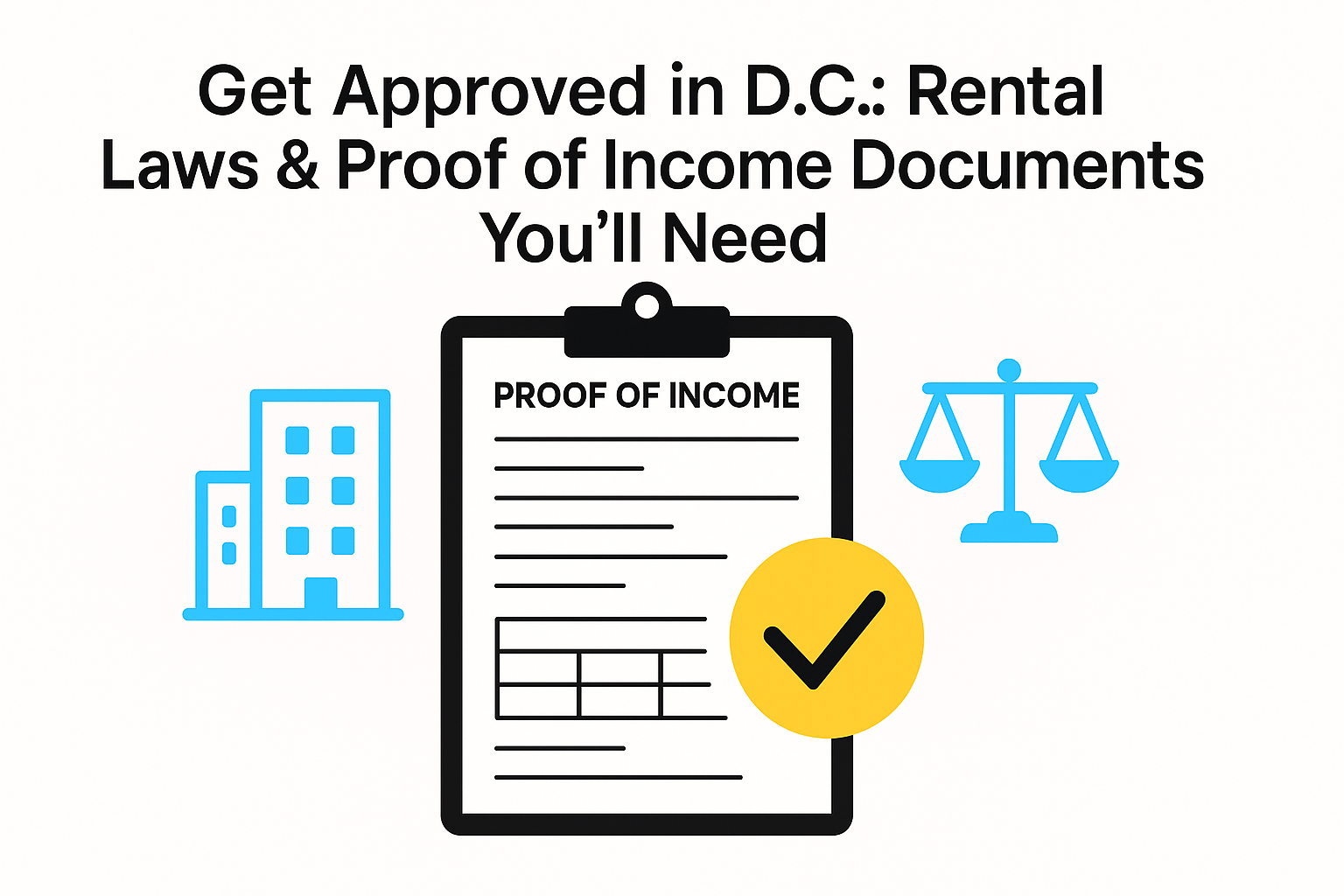
Which edits are allowed when formatting your documents?
Summary: You can format, organize and redact your own records to improve clarity. Keep the underlying facts intact—amounts, dates, payees and employer details must remain accurate. The goal is readability, not altering substance.
Formatting your existing documents to improve readability and organization is lawful. Across the U.S., U.K. and Canada, regulators permit tenants to supply digital copies of pay stubs, bank statements and tax returns. It is acceptable to redact sensitive details like account numbers or unrelated transactions, as long as the core information—amounts, dates and payees—remains intact. Enhancing legibility through optical character recognition (OCR), combining multiple pages into a single PDF or exporting scans as PDF/A for archival quality are also acceptable practices.
For example, U.K. Housing Benefit guidance requires original payslips and bank statements; you may scan and collate these into a single PDF to streamline your application. Canadian landlords often ask for two pay stubs or a Notice of Assessment; converting these documents into a standardized format makes them easier for the landlord to assess. In the U.S., landlords routinely request pay stubs, W‑2s, tax returns, bank statements and employment letters. Formatting these documents consistently—e.g., renaming files, reordering pages, flattening layers—reduces confusion and avoids delays.
We also recommend adding explanatory cover pages or summaries when appropriate. For instance, if your income comes from multiple sources (e.g., a salary and freelance work), include a brief note outlining which documents correspond to which income stream. For self‑employed applicants, adding a reconciliation sheet that ties bank deposits to invoice numbers can pre‑empt questions from underwriters. All edits should be made to enhance clarity and accessibility, not to mislead.
What document changes are illegal and risky?
Summary: Changing facts is fraud. Never edit numbers, dates, payees, employer names or transaction histories. Fabricating letters or using fake generators can lead to denials, eviction or criminal charges.
The line between formatting and fraud is clear: you may never alter numbers, dates, payees, employer names or other factual data on pay stubs, tax forms, bank statements or employment letters. Changing or fabricating information constitutes forgery and is illegal under U.S., U.K. and Canadian law. In D.C., the Human Rights Act explicitly prohibits discrimination but also makes clear that landlords may set qualifications; providing false information to meet those qualifications undermines your credibility and may lead to civil or criminal penalties.
Across the U.S., forging documents can trigger penalties under various statutes. For example, the Fair Credit Reporting Act requires landlords who rely on tenant screening reports to provide accurate information. Submitting fake pay stubs or bank statements may be considered fraud, which is punishable by fines and possible imprisonment. In Canada, the Criminal Code treats forgery as an indictable offence with potential jail time of up to ten years, and “uttering” a forged document—using it knowing it is forged—is also illegal. In the U.K., the Fraud Act 2006 makes it an offence to make or adapt a document with intent to deceive. We cannot stress enough: do not modify your financial documents to change amounts or hide negative information. Instead, focus on transparency and provide context where necessary.
Illegal edits also include fabricating employment letters, altering tax return figures, adjusting transaction histories, or inserting fictitious pay periods. Some online “pay stub generators” advertise fake documents; using them to misrepresent your earnings is unlawful and can lead to eviction, blacklisting or criminal charges. A better approach is to collect your legitimate documents and work with a professional service to improve their presentation.
When do you need professional document formatting?
Summary: Use professional formatting when clarity, speed and credibility matter. A clean packet prevents back‑and‑forth, answers underwriter questions upfront and keeps your application moving. The same standards help with loans, visas and benefits.
Professional formatting is valuable whenever clarity and credibility are paramount. Renters in competitive markets like D.C. often face strict screening criteria and tight deadlines. A complete, well‑organized packet can make the difference between approval and rejection. Beyond housing, auto lenders, small‑business lenders (including SBA loan programs) and visa officers also require proof of income. Each use case demands a tailored set of documents and careful presentation.
Renters applying in Washington D.C.
D.C. landlords generally expect applicants to earn enough to cover the rent and may require you to submit two or three recent pay stubs, a W‑2 form or 1099 if you’re self‑employed, and bank statements. While there is no law mandating a specific income multiple, many property managers look for applicants with gross income equal to two or three times the monthly rent. If you receive a housing voucher, the D.C. Human Rights Act prohibits landlords from imposing a higher multiple on your portion of the rent. Self‑employed renters should include a Schedule C or other tax forms and a reconciliation of deposits to invoices.
Mini‑scenario: You are paid biweekly and earned a one‑time bonus. Add a brief cover page that lists each pay date, notes the bonus as non‑recurring, and points to the matching bank deposits. This prevents confusion over fluctuating net pay.
Auto loans and other consumer credit
Auto lenders and personal loan underwriters typically look for stable income and a debt‑to‑income ratio below a certain threshold. Provide your most recent pay stubs, your prior year’s W‑2 or 1099, and a copy of your credit report if requested. The CFPB notes that if a lender denies you based on a screening report, they must tell you why and how to dispute errors. When applying for financing in the U.K. or Canada, include bank statements, tax returns, a P60 or NOA, and any benefit statements that contribute to your income.
Mini‑scenario: Your commission varies monthly. Include a 6–12 month earnings summary that shows averages and ranges, then reference the line items in your bank statements. This helps the underwriter model your ability to repay.
SBA loans and other business funding
Small‑business owners often need to provide comprehensive documentation, including personal and business tax returns, profit‑and‑loss statements, bank statements and payroll records. If you are self‑employed, a Notice of Assessment or Proof of Income Statement from the CRA or a SA302 from HMRC may be required. A professional service can help consolidate these documents and highlight the connections between personal income and business revenue.
Mini‑scenario: Your business reimburses you for expenses. Add a reconciliation that separates reimbursements from income and ties each reimbursement to a receipt or ledger entry. This avoids overstating your true earnings.
Other scenarios
Other common situations where proof‑of‑income packets are necessary include visa applications, insurance underwriting, loan modifications and government benefits. Each program has specific document requirements—for example, the U.K. Housing Benefit claim requires original payslips and bank statements, while Canadian subsidy programs may ask for your NOA or proof‑of‑income statement. Understanding these requirements and providing properly formatted documents helps ensure timely approval.
Mini‑scenario: You’re between contracts. Provide the last contract’s payslips, your recent bank statements and a signed offer or engagement letter for the next contract. Add a brief note explaining the gap and expected start date.
How does our process work?
Summary: We take the documents you already have and make them clear, consistent and easy to verify. We never change facts—our work focuses on reconciliation, redaction and presentation so reviewers see what they need fast.
At FinancialDocsProvider.com, our mission is to make your existing documents easy to review and hard to misinterpret. We never fabricate information—our job is to present your authentic records in a professional and compliant format. Here’s how we work:
- Intake & consultation: You upload your pay stubs, bank statements, tax forms and any other proof‑of‑income documents through our secure portal. We consult with you about your goals (rental application, auto loan, SBA loan) and jurisdiction (US, UK or Canada). We never ask for your passwords or access to live accounts.
- Reconciliation & review: Our team compares your documents for consistency. We check that names, addresses, dates and amounts match across pay stubs and bank deposits. If there are discrepancies—such as deposits that don’t align with pay stub totals—we flag them for you to clarify.
- Formatting & redaction: We combine multi‑page PDFs, convert images to searchable PDFs via OCR, apply PDF/A compliance where required and redaction of sensitive account numbers or personal identifiers. We can reorder pages chronologically, insert bookmarks and create a clear table of contents. If your documents use different currencies (e.g., you’re paid in GBP but renting in D.C.), we can annotate conversion rates.
- Quality assurance & delivery: Before delivery, we run a compliance check to ensure no numbers or dates have been altered. We deliver a final package within 24–48 hours, ready to upload to rental portals or send to lenders. Should you need revisions—such as adding an additional pay stub or clarifying a bank transfer—we handle them promptly.
If you need help with proof of income editing or bank statement formatting, our financial document services page describes the scope of services. For details on cost, visit our pricing page, or feel free to contact our team for a custom quote.
What belongs in your compliance checklist?
Summary: A strong packet answers the reviewer’s questions before they ask. Use this checklist to gather complete, consistent records and to confirm they meet the rules in your jurisdiction.
A thorough packet ensures nothing is missing when your landlord, lender or agency reviews your application. Use this checklist to assemble documents and confirm they meet legal requirements:
- Identification: Government‑issued photo ID (driver’s licence or passport). In the U.K., you may need two forms of ID—such as a passport plus a utility bill. Add a note if your legal name recently changed.
- Employment evidence: Recent pay stubs—two to three for U.S. and Canadian applications; five weekly or two monthly payslips for U.K. Housing Benefit. Ensure year‑to‑date totals align with bank deposits.
- Tax forms: Most recent W‑2 or 1099 for salaried and contract workers; full tax return (Form 1040) for comprehensive history. Self‑employed applicants should include Schedule C or T4, T4A and Notice of Assessment. Highlight any extensions or amended returns.
- Bank statements: Two months’ statements showing salary deposits and regular expenses. Redact account numbers but leave deposit amounts and dates visible. Avoid heavy black boxes over large sections.
- Employment letter: A letter from your employer or client confirming your position, salary and length of employment. Include contact information for verification and the letter’s date.
- Additional income: Benefit statements (Social Security, pension, disability), court‑ordered award letters, or workers’ compensation letters. Provide copy of benefit award if it contributes to your income.
- Rental history: Reference letters from current or former landlords verifying rent payment history. Add a contact phone number and the property address.
- Credit report: In Canada and the U.S., provide a recent credit report when requested; this may avoid a hard inquiry. Include the date the report was generated.
- Cover sheet & summary: Include a brief overview listing all documents, dates and key figures. If you’re using a housing voucher, state the portion covered by the program versus your portion.
- Document integrity check: Verify that names, addresses and employer details match across all documents. Ensure scanned pages are clear, legible and presented chronologically.
Consider creating digital folders for each category and naming files consistently (e.g., “2025-05_Paystub_EmployerName.pdf”). Keeping your documentation organized not only speeds up landlord reviews but also helps you respond quickly if an underwriter requests additional proof.
What red flags cause rejections?
Summary: Most denials stem from inconsistency, incompleteness or unclear explanations. Remove doubt by aligning facts across documents and by avoiding heavy redaction or unusual formatting choices.
Even a small inconsistency can raise suspicion. Here are common issues that trigger rejections:
- Mismatched information: Names, addresses or employer details that differ between your application, pay stubs and bank statements. Landlords will cross‑verify details; inconsistencies suggest falsification.
- Unusual formatting: Pay stubs with fonts, alignments or logos that don’t match known employer formats. Landlords may use online verification services to compare your stubs to authentic samples.
- Discrepancies in numbers: Net pay on your pay stubs that doesn’t match deposits in your bank statements or tax returns. Underwriters will calculate your monthly income; missing or extra digits are warning signs.
- Incomplete documents: Missing pages, cropped edges or fuzzy scans. D.C. law requires landlords to disclose the types of information they will consider; incomplete documents may cause delays or denials.
- Contradictory employment dates: Pay stubs showing employment periods that conflict with letters from employers or tax forms. Always ensure that start dates, pay periods and year‑to‑date totals align.
- Hidden transactions: Over‑redacted bank statements. While you can remove unrelated transactions, redacting large portions of a statement may appear suspect. Follow official guidance and only mask sensitive account numbers or personal expenses.
- Application fee anomalies: In D.C., application fees cannot exceed $50. If a landlord requests higher or multiple fees, it may indicate noncompliance. Always request a written explanation and keep receipts.
- Discriminatory questions: Landlords asking about your vouchers, benefits or requiring 3× rent despite a voucher covering most of it could violate fair housing laws. Document these interactions and report them to the Office of Human Rights if necessary.
If you suspect a mistake or discrimination, you have rights. In the U.S., the FCRA requires landlords to inform you when they use adverse information and gives you the right to dispute errors. In Canada and the UK, data protection laws allow you to question how your information is used and to correct inaccuracies.
Where can you find official resources?
Summary: Start with primary sources. These links cover D.C. tenant‑screening rules, fair housing guidance, dispute rights and proof‑of‑income documents in the U.S., U.K. and Canada.
Understanding your rights and obligations is easier when you know where to look. Here are authoritative resources to consult:
- D.C. Tenant Screening Law (D.C. Code § 42‑3505.10) – outlines disclosure requirements, fee caps and applicants’ rights.
- D.C. Office of Human Rights – Fair Housing Resources – provides guidance on source‑of‑income discrimination and offers training.
- CFPB: Tenant Screening Rights – explains adverse action notices and how to dispute tenant screening reports.
- GOV.UK: Housing Benefit Support – details evidence requirements for UK benefit claims, including payslips and bank statements.
- CRA: Proof of Income Statement – explains what a proof‑of‑income statement is and how to obtain it.
- Rental Application Documents & Income Proof – our guide on assembling rental documents across jurisdictions.
- How Many Months of Proof of Income Do You Need? – explores typical document timeframes and landlord expectations.
- Rent Without Proof of Income: Guarantor & Savings Letter Rules – explains alternatives like guarantors and savings letters when traditional income documents aren’t available.
For additional support, review our services page for proof‑of‑income editing and bank statement formatting. You can also learn about our pricing and read more about our process.
FAQs
Summary: Quick answers to the most common questions about documents and denials. Rules vary by jurisdiction, so always check the official guidance linked above.
How many pay stubs do I need for a D.C. rental application?
Most D.C. landlords ask for two or three recent pay stubs to verify your current income. The idea is to confirm that your earnings are consistent and sufficient to cover the monthly rent. If you’re self‑employed, provide two or three months of bank statements and a recent tax return instead.
Are bank statements mandatory, and can I redact them?
Many landlords request two months of bank statements to confirm that deposits match your pay stubs. It’s permissible to redact sensitive account numbers or unrelated personal transactions, but do not obscure deposit amounts or dates. Excessive redaction may be viewed as suspicious.
I’m self‑employed. What proof of income should I provide?
Self‑employed renters should supply a recent tax return or Notice of Assessment (Canada) along with bank statements showing business income. Include invoices or a profit‑and‑loss statement if available, and consider adding a cover letter explaining your business model. A professional service can help reconcile income across documents for clarity.
Is it legal to redact or reorganize documents?
Yes. Formatting, redacting sensitive personal information and improving legibility are allowed. You may reorganize pages, convert images to searchable PDFs or combine documents into one file. However, altering amounts, dates, employers or other factual data is illegal and may constitute fraud.
What can I do if my rental application is denied due to a screening report?
Under the Fair Credit Reporting Act, landlords must provide an adverse action notice if they deny your application based on a screening report. This notice should explain why you were denied, identify the reporting agency and outline your right to obtain a free copy of the report. Review your report for errors and dispute any inaccuracies promptly.
Need accurate, reliable financial documents fast? Contact FinancialDocsProvider.com now.
About the Author: Our editorial team specializes in financial document compliance and tenant‑screening best practices. With years of experience helping renters, freelancers and business owners across the U.S., UK and Canada, we deliver practical insights and step‑by‑step guidance. Learn more about our process and how we support your financial documentation needs.

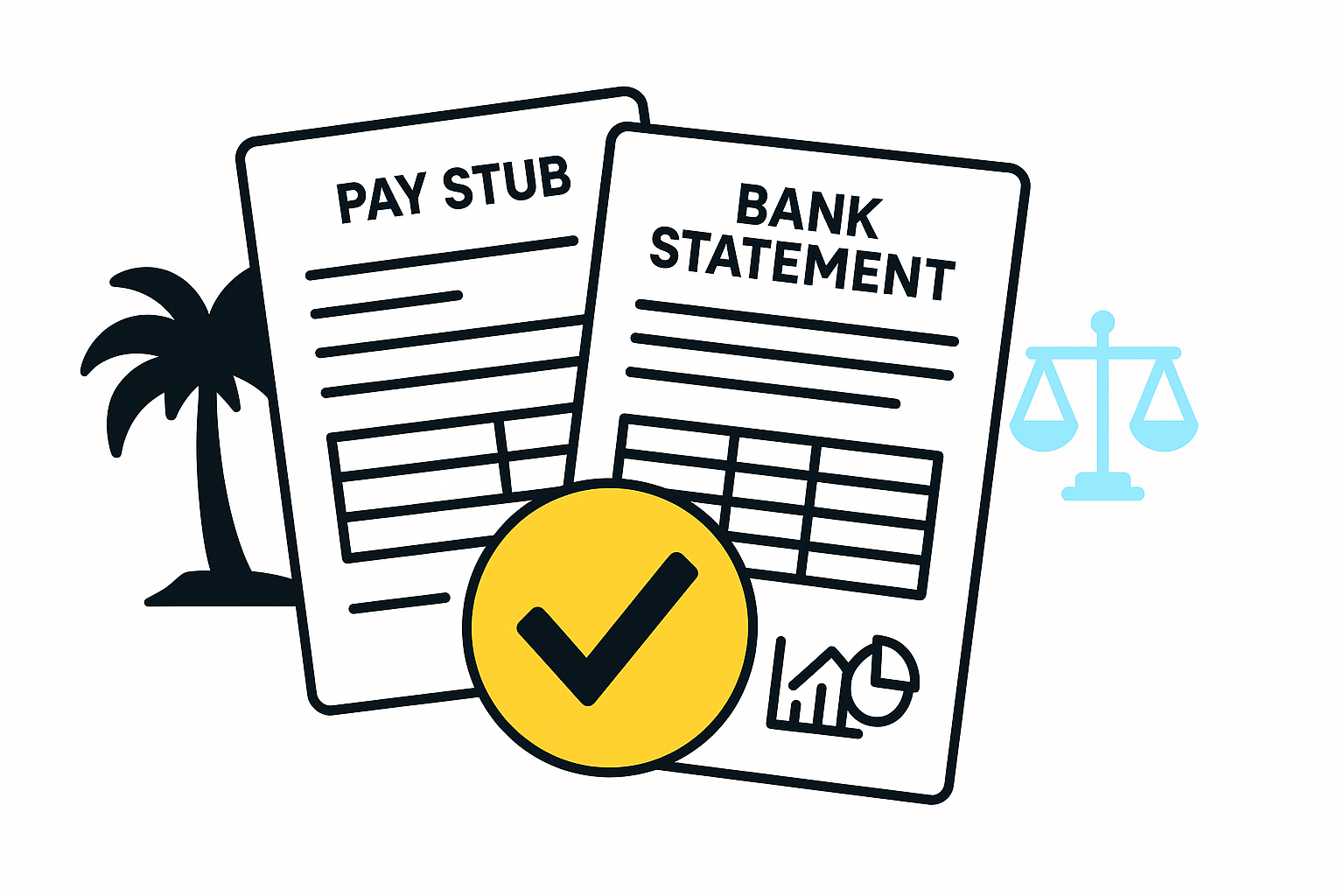
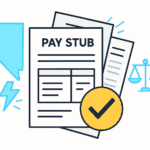
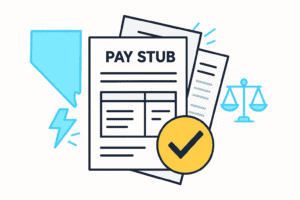
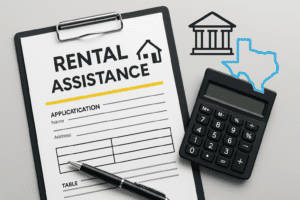
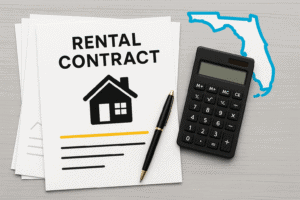


Add comment